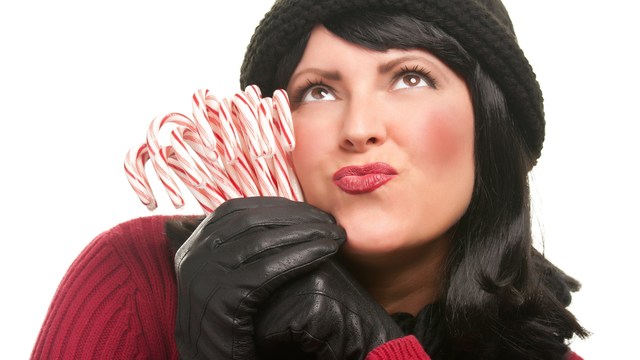 Andy Dean Photography/PhotoSpin
Andy Dean Photography/PhotoSpin
Most of the holidays with an emphasis on food consumption have passed, but we still have New Year’s Eve coming up. And that means a focus on New Year’s resolutions, which tend to be weight-related.
This focus on food and weight during the holidays and New Year is not easy for the average person to deal with, let alone someone who is suffering with an eating disorder.
Fortunately experts have some ways for us to cope with disordered eating or a diagnosed eating disorder during this hectic time of year.
Lauren Smolar, a Helpline manager at the National Eating Disorders Association, said that one of the best ways to get through the holiday season is to seek professional help.
“We recommend making sure that you know your boundaries and have planned a system of support to get you through some of the stressful times associated with the holiday events,” Smolar said in an email.
She agreed that this is sometimes not the most wonderful time of year for someone struggling with an eating disorder, and that’s why it’s important to ask for help.
“The holidays and new year expectations can certainly provide some challenging times for someone struggling,” Smolar said.
“There can be a lot of extra pressure with large gatherings of food and resolutions that are often surrounded by potentially triggering weight goals, which can be tough for someone who is struggling with an eating disorder.”
For someone with an eating disorder who may not have already reached out for help yet, her suggestion for a New Year’s resolution is to make that final push to ask for professional help.
Shoshana Kobrin, a psychotherapist specializing in eating disorders, has some extra tips via email to help put people with eating disorders and food/weight issues at ease during the holiday season:
1) “Take care of yourself. Plan treats that don’t involve food: a walk in the snow or to see the holiday lights, a new book, movie, or some gentle music, a massage or spa treatment ... buying a special notebook to journal or draw your feelings.”
2) “Prepare yourself. For times when only cookies or doughnuts are available, or you’re on the road, have some ‘safe’ food handy – almonds, crackers, carrot or cucumber sticks, cheese sticks, apple slices. Have a good and healthy breakfast and lunch so you won’t be starving by the time you get to the holiday dinner. Trying to lose weight before the New Year’s Eve party will only backlash into uncontrolled eating or over-restricting.”
3) “Look ahead. Who will be at the parties? People you enjoy or people who are ‘toxic’ and put you down or ignore you? Will there be a lot of drinking, especially at New Year? To avoid the pitfall of stress-induced eating, hang out with the good guys, avoid as much as you can ... the bad guys.”
4) “Draw up a food plan. Which foods do you enjoy, which might trigger a binge, which feel safe? What foods might you expect at each party, and how are you going to handle all that abundance?”
5) “Be mindful and aware. Eat slowly. Take small portions and really taste each bite ... Put down your fork when participating in conversation.”
6) “Be thoughtful about your choice of food. Take the buffet table slowly. Help yourself to those foods you love, those foods that you get only at holiday times. Let yourself enjoy them.”
7) “Listen to your body. Take some deep breaths, relax your eyelids, mouth and shoulders. This [is] where we hold tension. Let your stomach, not your mouth, tell you if you’re full or hungry. Remember the AA dictum, HALT – if you’re Hungry, Angry, Tired, or Lonely ... you’re likely to binge or over-restrict.”
Stacey Rosenfeld, a licensed clinical psychologist, said in an email that one way to cope with an eating disorder during this time of year is to set one or more positive intentions, such as catching up with a specific friend.
Here are a couple more tips:
1) “With regard to food, see if you can do this year differently: There's no need to restrict your intake before an event and also no need to eat compulsively during ... If you're no longer hungry, but loved a particular item, perhaps the host will send you with some to go. The next day, return to eating as normal for you, without trying to compensate for the ‘damage’ the night before.”
2) “At specific events, focus on the company, not the food. How about board games, dancing, looking through vacation pictures?”
3) “Recognize that with a change in routine, travel, holiday eating, etc., you may gain a little weight during this time. This should regulate over the course of a few weeks.”
Sources:
Smolar, Lauren. Email interview. December 24, 2013.
http://www.nationaleatingdisorders.org
Kobrin, Shoshana. Email interview. December 25, 2013.
http://www.shoshanakobrin.net
Rosenfeld, Stacey. Email interview. December 24, 2013.
http://www.staceyrosenfeld.com
Reviewed December 26, 2013
by Michele Blacksberg RN
Edited by Jody Smith





Add a CommentComments
There are no comments yet. Be the first one and get the conversation started!